By Madronna Holden
I am going to go out on a limb here. I am going to assert my belief that there is something mysterious in the life of the natural world that wants to reach us, to touch us (to heal us). Even though we cannot prove this, we can tell its story as if the larger-than-human world is trying to communicate with us–and therefore change the way we live. Perhaps by telling our story differently, we may create a partnership with the world we share, move toward a flourishing future for those who inherit the results of our actions on this earth.
We do know (courtesy of the Gaia hypothesis) that the natural world exhibits a system of balance built up over millions of years. We barely understand the complex mechanisms by which all the parts of this system tune themselves to one another. Surely they do not all speak English! Thus it is incumbent on us to try to try to understand that larger-than-human language instead.
If this sounds too quirky for you, imagine some of its results. There is Nobel Laureate Barbara McClintock, who stated she attained her knowledge by “listening to the corn”.
Each of us can try a parallel approach in our everyday lives, telling the story of our relationship to the world as if it were speaking to us. Here is an example. One of my students has an autistic child who has from birth had a remarkable connection with the natural world, believing, for instance, that everything is alive and also that we should be saving the world’s wild seeds. Set this in context: autism rates are currently skyrocketing and a substantial portion of that increase is caused by exposure to human-caused pollution.
Ancient cultures speak of the wounded healer, which gives us a way to tell this story. Here is a child wounded by harm to the natural world who also carried with him into life a profound motivation to heal that harm. This sense of purpose is untaught, something in a language humans do not regularly speak, to which it is sometimes very hard to listen. But from listening to this child his mother learned much of her own environmental awareness.
We need our science (the kind that truly listens to our world) to right the environmental crises we are currently facing: we also need our stories. We need metaphors in the ancient sense of the word: metaphors that “carry across”, that create a bridge (with all the water of mystery flowing beneath it) between ourselves and the larger than human world.
When the great tsunami ravaged Asia a short while ago, some traditional tribal peoples did not suffer the damage of more “civilized” peoples. On a simple level, their mangrove swamps were still in tact to ameliorate the effects of the tsunami. But something else as well: they say they listened to the animals who told them the storm was coming and moved to higher ground before it hit. How was this? By the way they moved? Did they note their restlessness? Or perhaps they understood them in a language more complex and profound.
Imagine listening to other living things (and to one another) in this way–and then acting as if we are in partnership with the natural life that sustains us.
Imagine understanding storms as bringing us light (haven’t you already seen this in the way the wind illuminates the world by means of movement, the way the rain washes our world into its glowing potential)? Don’t we create our own form of chaos when we take up the broom to sweep our houses clean?
And isn’t it the things which are most inconvenient to our habitual way of doing things that have the most to teach us, bringing us to our own larger selves?
You are welcome to link to this post. Note, however, it is copyright 2008, Madronna Holden. Feel free to email me if you wish to use or copy it.
Filed under: Ecofeminism, environmental philosophy, Environmental psychology, Health, Health and healing links, Hope and vision, Our Earth and Ourselves, worldviews | Tagged: environmental philosophy, Environmental psychology, wounded healers |




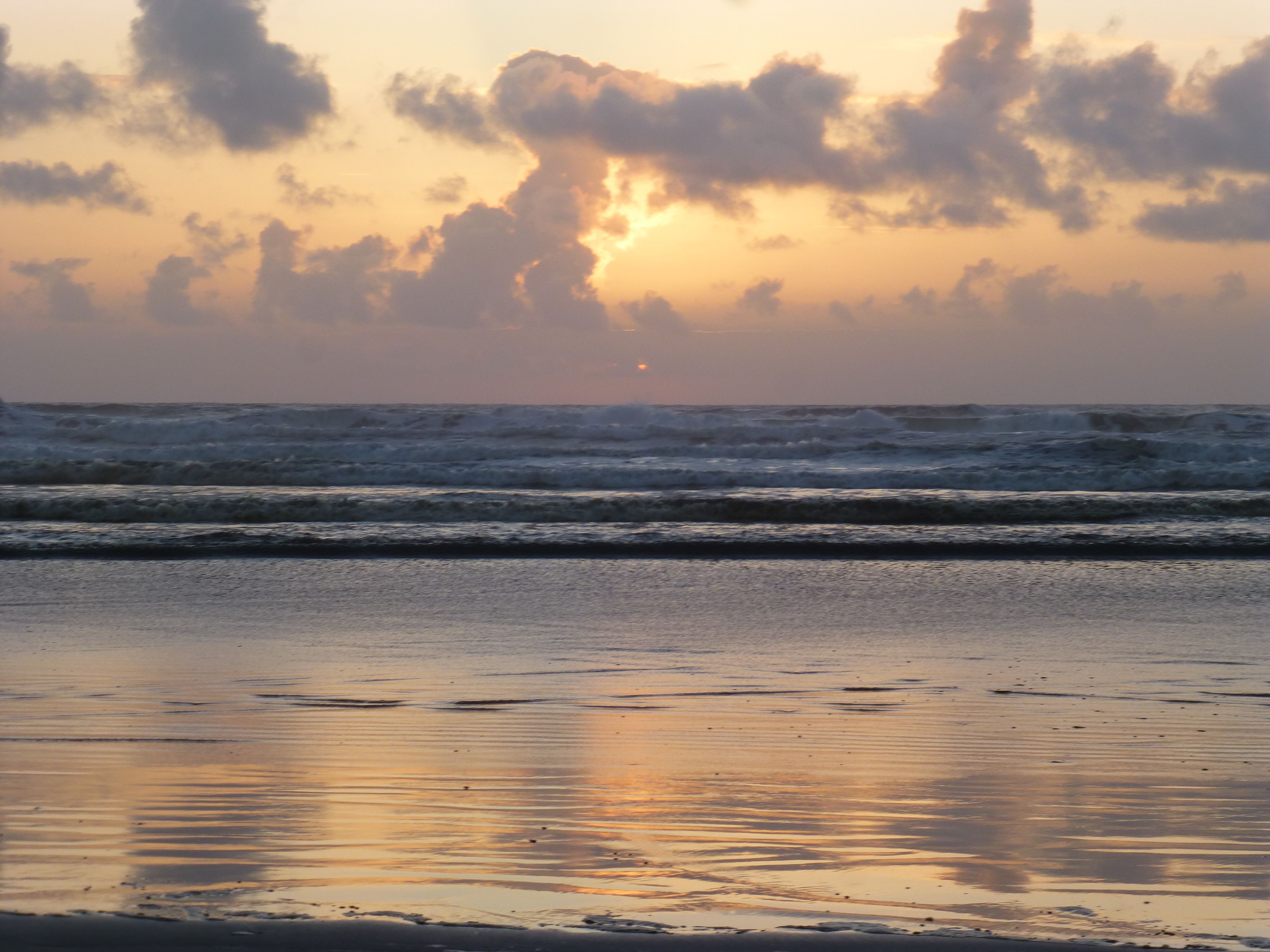

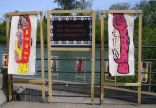



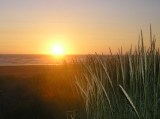
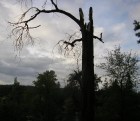
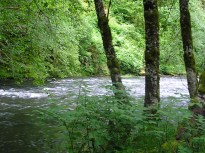



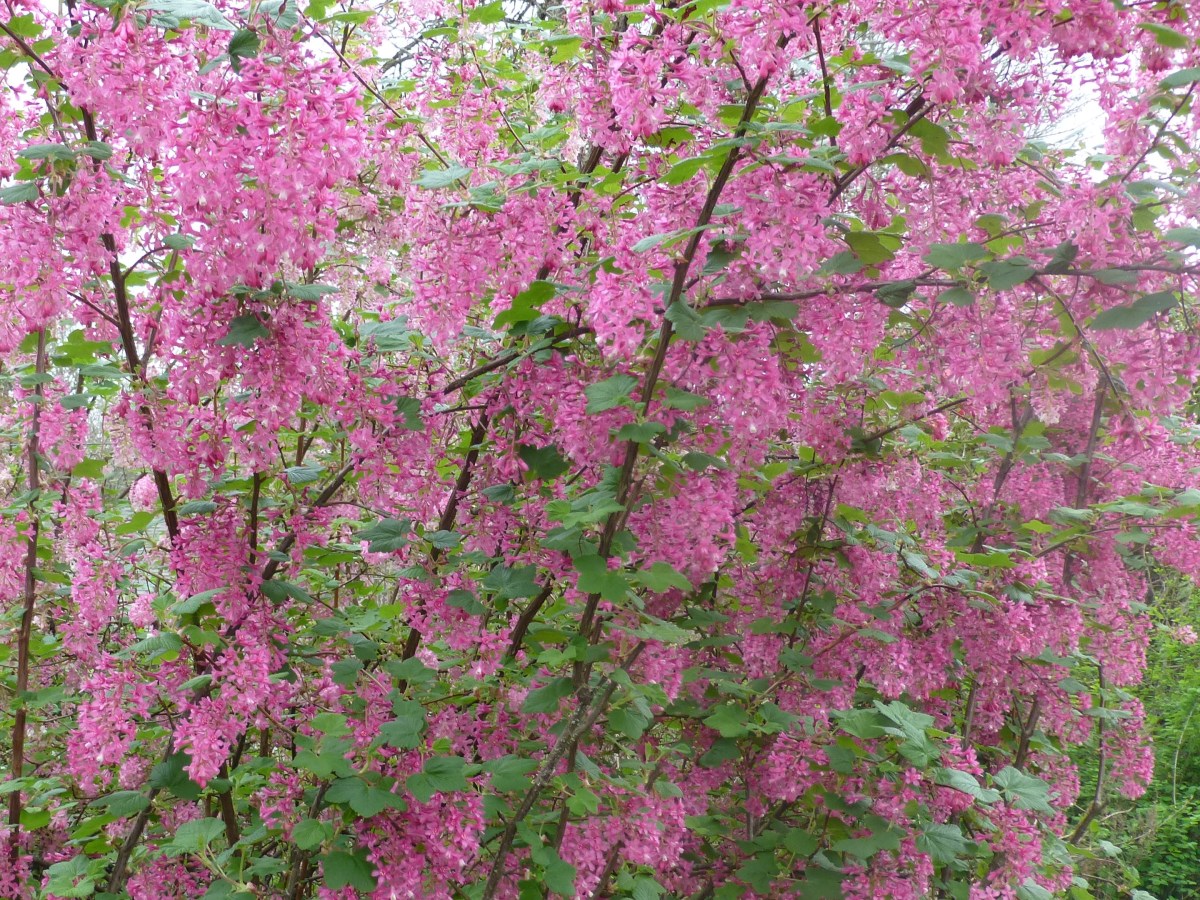
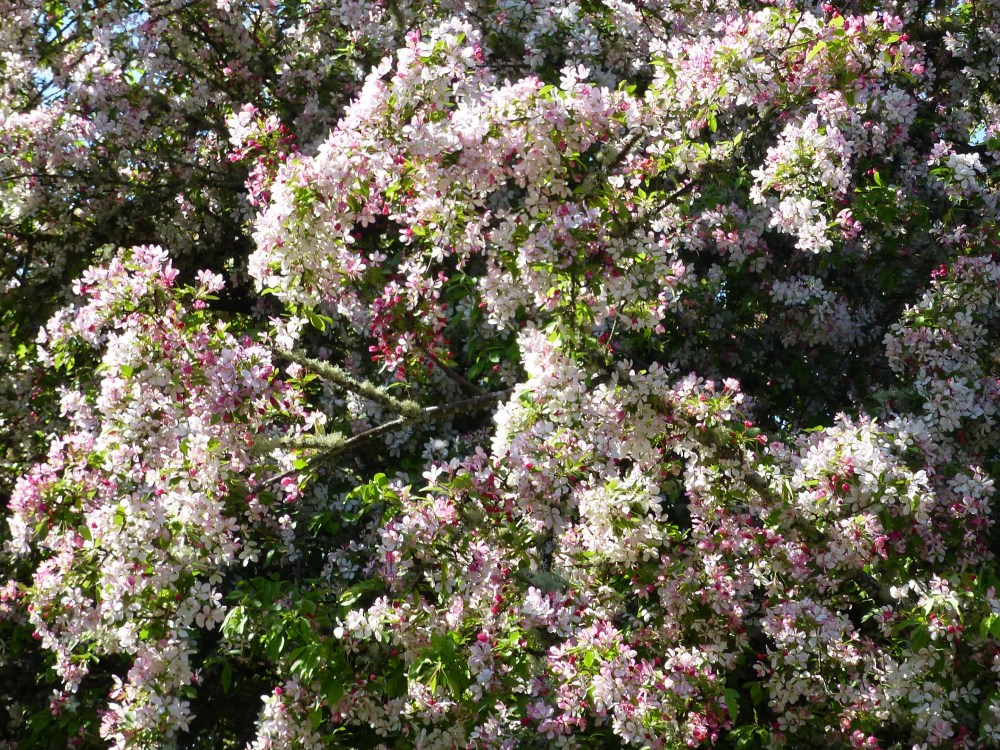
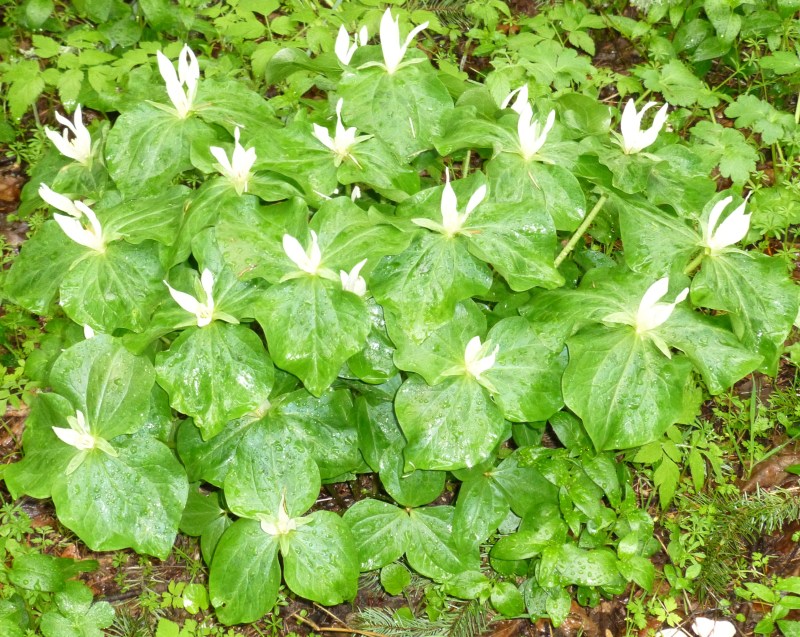
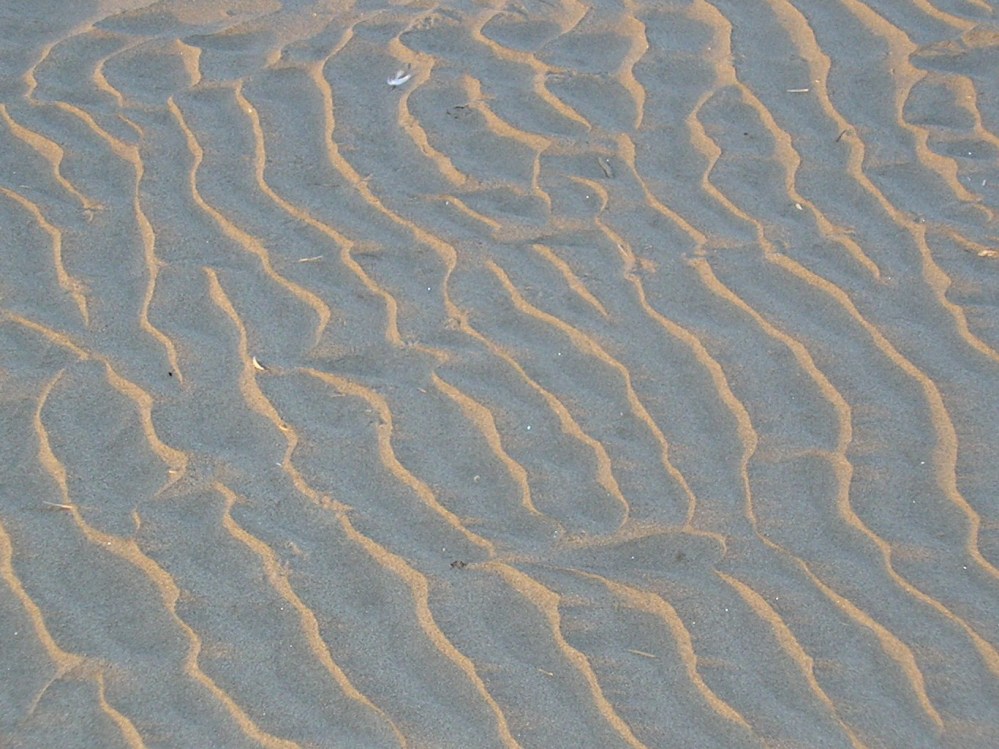

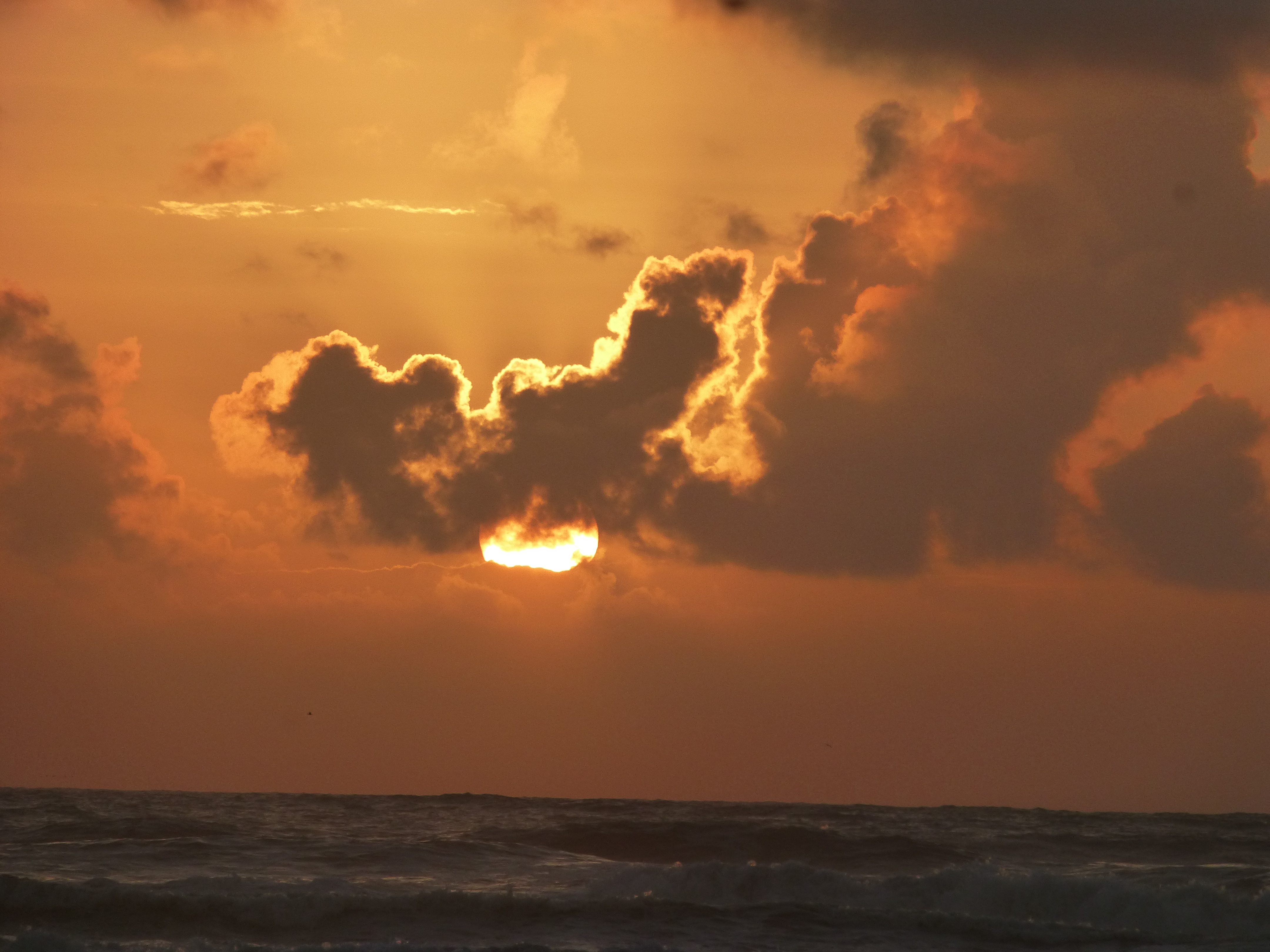
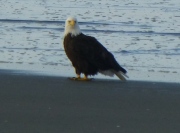

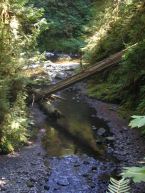
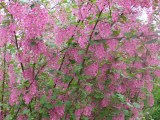




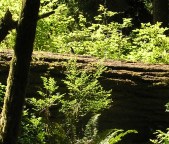




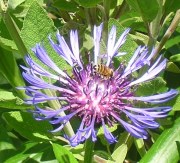



I really enjoyed this article. There is a reason that the farmers have been self sustaining for thousands of years. They listen to and appreciate nature-the land and the animals. My mom and dad taught me to watch the cows to see which way the rain is coming in from. They will always turn their back sides to the rain. I believe that being in tune with nature is a sense in itself, and this becomes more evident in cases like the autistic child. It is amazing to watch children. It is as if they see things that we don’t. Nature will take care of you if you let it and listen to it.
It might be interesting to make a list of such insights– I have heard this before about cows. I am sure there are many other insights among those who live close to the natural world on a day to day basis. I like your last sentence!
Thanks for your post, Kelly.
I was delighted to read this article, especially in light of the fact that I just made a comment on the “Tree Huggers in the City” article, talking about trees, fire and things telling us stories! I definitely believe if we all took time to listen to the natural world, and be open to its messages, we would know so much more about ourselves and nature. Maybe the industrial revolution, which has just about destroyed all of life on earth, will one day be looked back on as a brief, dark period in history, where man quit listening to his heart and nature and lost his connection to wisdom and ancient knowledge, but then relearned and rediscovered it again, and then things moved toward sustainability and sensitivity again. (and they all live happily ever after, right?)
Hi Lesley, thanks for this comment. I love your vision. What stories future generations will tell of us if we change our course of action to allow them to survive, is an interesting– and motivtating– speculation.
I too believe that nature reaches out to speak to us. I have grown up fortunate enough to be surrounded by animals and knowledgeable people who have shown me a few of the many ways in which we communicate with the the natural world. As a parent, I am passing on that knowledge to my children. Things like smelling rain before it arrives, watching our animals for changes in weather patterns, changes in plants and trees when the seasons begin to change. All of these are subtle cues that guide us through some of the complex systems of nature. It is very humbling to know that you are here only briefly compared to how long life has been sustained on this planet. While we in the West are brought up to regard nature as something we control, we humans have only the briefest of history compared to the vast amount of time life has been supported here. How arrogant we are to think we are complex enough beings to have unravelled all of the mysteries millions of years in the making.
Indeed, Kathleen. And it seems that there are mysteries we would not wish to “unravel” — or to treat as if we did– lest we unravel the fabric of life–which, as you indicate, has been millions of years in the making–along with them.
Wow, that part about the autistic children really stuck with me! It may sound farfetched to many, but that made alot of sense to me…are there any studies being done on autism connecting it the ancient “wounded healers”? Are there any books on this anywhere??
Gosh, Randa, you seem to be asking the questions I can’t answer tonight. I don’t know of any books connecting autism to “wounded healers” but there are plenty of books on “wounded healers”– I can’t think of one to single out, but you might have some fun hunting through them.
This is a beautiful post. I 100% agree that by paying attention to how animals react in normal times compared to crisis times, and generally paying attention to your surroundings at all times to note changes, really makes a difference in connecting with nature. If we are completely focused on human interactions and not paying attention to any other part of nature, then we will miss out on so many wonderful experiences.
I’m glad you like this, Amy. I appreciate your comment. We miss out on so many wonderful experiences–and so much knowledge as well, Amy, if we focus on our humanity as if it were separate from all other aspects of the natural world. Thanks for reminding us of this!
I really liked this article, especially the part in which the tribal people of Asia attributed their safety from the storm to their relationship with the animals around them. Yes, I see the our science and technology is important to gaining insight on these types of things but because of this we have lost touch with our natural world and no longer utilize it to the fullest as far as preparing us for things such as these storms.
My hope, Alana is that our science will expand enough to allow us to incorporate such traditional observations (not to mention, ethics!) as well. Thanks for your comment.
In continuation, the Autistic Child:
Last night while myself and my dear friends were presenting an indigenous knowledge event at the cabin in the college of forestry, Peavy arboretum forest, I would be momentarily interrupted by my son who would quietly say, “look at this one Mom, isn’t it beautiful”? He was marveled at the branches that had been left on the forest floor, that he says were “gifts to him from the trees”. He always asks the trees first if he can have them. And at the end of the presentation we held a healing circle. Elder Gail asked that we each hold the eagle feather and tell from our heart what that evening meant to them. There were about twenty of us sitting in a circle, with my son sitting next to me. The feather was passed, one by one each of us spoke, until the feather was passed to my son. I was a little nervous because he doesn’t have a filter like you or I do and sometimes he is seen as being inappropriate. So I held my breath and this is what he said. He hesitated for a moment then said…”the path is before us, all you have to do is find it and walk with us, together we can heal the world”. People were amazed and I couldn’t hold back the tears. Then he said “and if you want to be a ninja, you must have a karate mind for karate to come to you”…Everyone laughed….That is the world of my son, the autistic child, such a beautiful spirit and so connected to nature and his native heritage all wrapped up in an innocent sense of humor.
Blessings to all on this Thanksgiving day
V
Hi Val, thank you for sharing this touching story of your son, whose spirit is obviously as powerful as it is joyous and spontaneous (whatever our rules for “appropriate” behavior). Congratulations on being his mother. I appreciate a small glimpse into this event as well– I was wondering how it went.
I used to love the crazy summer thunderstorms back home in ND. I used to get in my vehicle whenever I heard a storm was coming and go chasing the storm. It was (and still is) the most awesome” natural high” in the world to me. A good indicator of a storm would always be the when the cattle herds or horses were huddled in one corner of the pasture instead of their normal spread out grazing. The animals always knew when a storm was nearing. I always thought it so amazing and wondered how they knew. I believe that if we, as humans, tapped into our natural senses and instincts more, we too would be able to feel the storm coming before it actually hits.
Listening to the nature can clarify many clues. For example, the ancient people had never used a clock, they know the time by looking at the sun shadow instead. Another example is that my dad told me that when you want to know if it is going to rain or not, just look at the northern side of the sky and if the clouds over there are turning to black, it is going to rain. And he was right because I tested his theory for many times and it works.
That is a great bit of information that I didn’t know, Duaa. I will have to watch those northern clouds!
I agree that inconvenience and upheaval both seem to work as agents for change, sometimes revealing the most amazing things. Not all people would learn the same lesson if they ran into the same trouble, so it seems like free will plays a part in whether or not (and how much) we learn from the chaos. I think taking responsibility for our own actions as much as possible helps us be more open to the benefits of life’s “storms”.
When I think of a “wounded healer” I think of the Earth. I really appreciate your insights about the Earth speaking to us through our children.
You present a powerful image here of the earth’s “speaking to us through our children”, Kellie.
I am thinking that perhaps we have all been wounded in some way by the degradation of our environment–and thus we all have the potential to become those “wounded healers”. Thanks for your comment.
Being able to understand nature and the animals that live in nature can warn us of many natural disasters. Like in the example in this essay of the tsunami. Animals can sense when something is about to happen by the wind, the water, the earth. I think that animals have a greater connection with our land and our soil that they can sense vibrations in the ground not felt by humans. There keen senses really set them in a league of there own compared to mankind. I wish that I could have the sight of a hawk or the hearing of a rabbit just for a day to see what it is like and how the world changes for me.
Hi Jayne, you have touched on a perception of many indigenous peoples– that we extend our own senses (and our own humanity) in seeing how more than human life feels or perceives it.
Having a relationship with the natural world does bring a finer “tuning in” to what it has to say. It is no different than knowing your pets well enough to realize when they are trying to tell you something: what they need, where they want you to go/follow them, or even acknowledging that you need some special attention from them. So, the fact that the Asian peoples affected by the tidal wave could have been more deeply affected if they had not listened to what the animals had to say is very easy to understand. The animals around us are more tuned in to the Earth than we are, if we don’t listen to them, we are missing an open connection!
Great points, Mary. We can never listen too much to the living world around us–or have too much education in this important skill.
Wow, this story of the autistic boy is quite beautiful and quite inspiring. I love to hear stories about children, as they often times possess a lot of wisdom in their innocence. They are able to think simply, and point out things that perhaps we are too caught up to notice and realize. The fact that this boy is connected so deeply with the earth at such a young age brings some hope, as we will need people like him to bring their knowledge to the table and help educate others with it. This story is inspiring, and helps me to realize I need to make an effort to not just have a respect for the earth, but to communicate with it, listen to what it needs, so that I can give back to it what I am taking away.
Wonderful, Megan. I especially appreciate this boy’s mother– who shared these lessons with me. As you indicate, such lessons would go unheeded if there weren’t someone to listen to them with love and respect.
I like the example of the animals knowing when a storm is coming. Technology and weather forecast can only tell so much, but the activity of animals and the patterns of nature are indicative of what IS happening, rather than what may happen. I agree that there is much to be learned from nature and the world of living things around us. When we try and do things our own way and create technology and societies that are advanced and industrious, we remove ourselves from the natural patterns of the earth. Much of what we “learn” are patterns in nature that animals have already been attuned to for centuries. We chose no to listen to the world around us, but to create our own world in which we make the rules and we feel that we are in control. The truth is, as much as we are in control, a large tsunami can still come and wash us away and a violent storm can still cause great damage. The control we have over our world only extends so far– as does our knowledge. By being more aware of the natural world around us and open to the lessons it has to teach us, we stand to gain much wisdom and lose less, since less value would be put on the products of industry.
We create terribly lonely as well as often disastrous results in creating “own our world”, Ellie. As you indicate, we become larger as we take what other lives (including more than human ones) might teach us into account.
It’s interesting to know and realize that various diseases can and have been caused by our own pollution. Once again, reminding us of our consequences for destroying our connection to the natural world and self indulging in our own needs. For years we have been killing other living beings with our human caused pollution and now it has reached us. I have always believed in signs, that the world does warn us of things that are to come but we are so lost in our correlation to the natural world that we don’t listen or we just don’t hear it anymore. Even after all that we have done in the destruction of mother earth, she still has her ways to warn us and tell us, the unfortunate thing is that we as a society will probably only hear it when it is too late.
Environmental toxins are more and more becoming realized to be the key cause of cancer especially. I like your sense of communication with the world around us.
If we don’t listen to such signs with which the world speaks to us, we can only suffer the consequences. Your idea of signs is close to Jung’s idea of synchronicity– when we give such signs meaning, they aid us in constructing the story of our life.
I agree with this article. I believe our world has it’s own balancing mechanism. If we continue on this path, the world itself will be here, but nature on this planet as we know it may not. We as human beings, I believe are helpless against the forces of Mother Earth. If we do not respect her, we will not be allowed to ensure our survival for future generations. This article also touched me in a personal way because I also have a child with autism and wonder often regarding the origins of her diagnosis. What pollutants was I exposed to? There was lots of discussion regarding child’s immunizations and autism. I wonder those immunizations were responsible or was there a genetic factor involved. Either way, I feel we need to be mindful of our treatment of nature and stop dumping toxins into our atmosphere that may be cotributing to the rise in autism and cancer.
Thank you for sharing your situation as the mother of an autistic child, Elizabeth. Is is tragic that Oregon has one of the highest incidence rates of autism in the nation. We don’t know why this is so– it must be distressing to try to guess what it was that might have caused your daughter’s situation. Even sadder is the fact that this is not a natural incidence rate in our species– but something that correlates with our modern lives in some way we have not yet determined (though we do know that certain pesticides and metals like mercury do effect the nervous system–and that the developing child is especially sensitive to this.
The rise of autism parallels the rise in cancer rates– and we absolutely need to better assume the responsibility for actions that might be causing this.
Thanks for your comment, Elizabeth.
I think how awesome nature is and how enlightened we could be if we just listened to everything around us. It is so difficult for so many to see the wonders of nature but for others like the child with autism, they can see and hear it because I believe they are more intune or ensync with the environment. I can learn so much just from children because they are aware through their innocence of themselves/ bodies and they have not been disconnected from the environment since curiosity is so rampant within them.
Great point about all we have to learn from the lives (of all species) that share our world, Tina. I can only imagine how “enlightened”, as you aptly put it, we might become if took advantage of only a fraction of such learning opportunities.
It is true that sometimes in order to make things better, we first need to make a mess. This article gives me a brand new way to think about storm. It is interesting to know that storm washes our world in to its glowing potential? I have heard about in the old time people who live on the side Mekong River were using the flood of the river to fertilize their lands. The water of Mekong River was very nutritious for the land. Therefore, every year people of Mekong River moved to the higher land and left the lower to be flooded. After few months, they came back and started a new season of agriculture. Since the land was flood for months, it was soft and rich. I don’t think they are still doing that it now, since there are many dams was built along the Mekong River. The dams really affect the flow of the river as whole. To some degree, new dams improve the economy of certain areas. However the price for the new dams is environmental consequence, and traditional life style doom.
Hello Vu, thanks for sharing this bit of history in terms of the way that the people living along the MeKong River honored the climate nature gave them–and the river that brought fertility to the soil. I know that that whereas the river bottom land was the most fertile for pioneers settling in the Willamette Valley. But to attempt to settle in the flood plain permanently was something native people never did.
I enjoyed this one, it reminded me of my childhood and how I used to understand what plants were feeling they spoke to me but not in words but in waves. I know i use to talk about it a lot but back then after a lot of ridicule I stooped and told others that it was just childish impregnation.
I hope that you once again find the voices of plants that once spoke to you– they were certainly wiser than those who would ridicule you just because they did not listen to the languages of the world that you did.
You make a really good point about the high rates of autism in this country due largely to the high amounts of pollution that WE create. I have heard numerous people make excuses as to why the autism rates are so high, when really, we need to take the blame for the harm we are causing to our environment. It’s a shame that our own selfish needs are destroying the beautiful world we live in–and our children’s health.
Even more tragic because we certainly aren’t adding to our quality of life, Samantha. Thanks for your comment.
My mother would always tell me things like that animals know when a storm is coming. My mother always had a strong connection to nature, and she would always tell me to observe nature to learn things about the world, just as this essay is saying.
That’s very interesting the idea about the “wounded healer” and autism. I am curious to know more about what the autistic child in your essay would say about saving the wild seeds.
Interesting question; since he is the child of one of my past students, I don’t know him personally.
Sounds like your mother was great! Maybe I should say is great? Seems to me that those who impress us with their spirits like this continue to be around us, one way or another.
I believe that you are correct in that nature is trying to reach us. It does in ways that we definitely do not know to react to but I still think that it is trying. I think it also communicates through our bodies. I get nose bleeds when the weather changes. I think that it is because of a change in the air moisture and pressure. It can be annoying but it is nature’s way of telling me that the weather is changing or that there is something going on in my body.
What I found interesting was the animals and how they were able to tell the storm is coming. I have heard that animals have been able to know when a storm is coming. I once upon a time heard the Crocodile hunter in an interview that animals do sense when storms are coming. He even said that there was scientific evidence that showed it to be true. I really think that this is one those examples of how nature tries to contact us though the storm.
Our human senses do not tell us as much as these other creatures: we can only hope to make up the difference through careful observation and knowledge regarding other lives.
Nature does teach us lessons- whether we realize it or not. Global warming, as an example, is occurring because humankind has abused Earth and now the weather is changing, Glaciers are melting, sea levels are rising, animals are going into extinction, etc. This is natures way of showing us that what we are doing to the planet and how we are treating it is destroying Earth and its inhabitants- and guess what, we are one of Earths inhabitants. I believe nature is trying to tell us to stop what we are doing or else it is going to be too late for us and we will end up like all the other animals that are going into extinction!
Thoughtful point, Kayla. Perhaps we might say that nature has lessons to teach us whether or not we attend to them? It would certainly seem like global warming-caused weather patterns are upping the ante in terms of the necessity of learning lessons of responsibility for our actions.
Listening to nature is something that we seem to have come so far from. Now you have everyone walking around with earphones in their ears, the constant sounds of cars and machines drown out the sounds of nature. Now if we want to know what the weather is going to do we turn on the television and watch the news. I liked the part of this article that talked about the child who has autism and has a connection with the natural world. I don’t know a lot about autism, but I believe sometimes senses are heightened or they are very aware of certain things around them, they can see them more intensely than we can. This child’s insight is something that we choose to overlook. Everything is alive and we do need to be saving the world’s wild seeds instead of trying to alter them or letting some of them disappear for good.
Indeed, thanks for sharing this perspective.
This world has become so fast paced that very few stop to listen. In Western Society nothing is ever fast enough. It is one of the biggest reasons for our weight epidemic in the United States. Everyone wants everything fast, if only people could slow down just long enough to listen. Though I may not stop and listen enough, I can usually tell you when the weather is shifting, just by stopping, feeling the wind and reading where the clouds are and their movement. There is a stillness before a storm that is unmistakable but many do not stop to notice. It may sound weird but there is a change in the smell on the wind or in the air when the weather shifts as well. An as you pointed out before any huge storm if you are out in the wilderness, the animals will tell you it is coming, you just have to stop and listen. They always say that a person has to hit bottom before they bounce back, I wonder if that is the same for an entire race. Only time will tell.
Much to consider in terms of the need to “hit bottom” for our species in order to understand how to listen (and to finally lose our addictions to things like consumerism and quick fixes?) Thanks for the thoughtful response.
I think there is something soothing about listening to the natural world. It’s such an ancient song, one that ebbs and flows everyday. One of the best things I have seen recently was when I was up in Minnesota way out in the country, the entire sky was filled with stars. The sky was so huge I felt like I was in a planetarium because I have never in my life seen so many stars in such a black night. At that moment I felt apart of something so much greater than myself. I think part of listening to the natural world does promote healing. If I am feeling blue or out of sorts I like to find myself outdoors. The autistic child who knew a deeper wisdom about the Earth also demonstrates a child’s intuitive view. I think they appreciate nature more than adults do and that comes with a certain kind of wisdom. As a kid I spent most of my time outdoors running around bare foot. I was rarely ill and definitely felt a sense of comfort in lying under a big tree. I think as adults we confine ourselves to a prison that consists of our cars, our jobs, and our homes. Lately, I have been trying to take the time to go outside when I hear the trees calling me. It always ends up relaxing me and I can come back to the adult world with a renewed vigor.
A wonderful image of the natural world as an “ancient song”, Lindsay!
Thanks for sharing your experience of the sky filled with stars– an experience of all humans prior to light pollution and one which various “dark skies” initiatives are trying to get back to through the win-win strategy of saving on lighting at the same time directing it only where it is needed.
I would wish that every child might experience the profound sense of being part of something larger that you felt gazing at those stars.
It is great that you are honoring your healing by responding to the trees when you hear them calling you.
And as you noted in another comment here, to miss this would be to live in a world lacking spirit.
By contrast, the spirit-filled world you give yourself time to be with obviously also gives you something profound to share with adults who have lost the intuitive abandon of childhood to the natural world.
In this essay you mentioned that ancient cultures spoke of the wounded healer. I found this a fantastic example of coincidence as today is Saturday and on Monday I told my massage therapist that I thought that healers needed more healing than the average person. I also told him that I thought that healers are unable to heal themselves. He agreed with me on both counts.
I totally agree that healers need the most healing. I think it has something to do with carrying so much weight from everyone else that they heal. They hear and heal so much, it has to be such a great weight on their hearts.
Thoughtful response: something to consider in the modern day. Perhaps this is the reason that we characteristically expect our doctors to be “curers” and medicators rather than true healers– which takes so much emotional energy.
Very interesting. The thing about these ancient ideas is their persistence through many cultures indicate something powerful about the processes in the human psyche.
I love storms. I love to watch them unfold before me or even just go stand in the rain (no thunderstorms, promise). But I love to listen. I try to be outside as often as possible and I love to listen. One of my favorite sounds is, in fact, a thunderstorm. Mother nature has her ways to warn us and tell us what’s going on in the world around and within us, the unfortunate thing that we as a society often ignore her warnings.
Thank you for sharing a lovely personal response to this drama in the natural world, Cassandra.
Animals can tell us SO much. It amazes me how perceptive to the natural world they are. I can always tell when it is going to be stormy by watching the way my cat reacts outside. Or watching my neighbors horse as she gets anxious and then goes to stand under a tree. Surely enough, it starts raining shortly after. More often than not, our weather men are inaccurate but yet every year, millions of Americans believe what a groundhog will predict to be an early Spring or late Winter. I love that. I used to have a weather fish in our fishtank growing up and its behavior was spot on with the weather. Its a wonder people don’t pay more attention to animals in terms of weather.
It made me smile to think that a “weather fish” (wish I never heard of until now) is doing better than our meteorologists. Being alert to our “animal” senses might also allow us to share such awareness. One native elder told me that differences in sound quality indicated weather changes that you could hear.
And there is the remarkable forecasting of the huge Asian tsunami on the part of fishermen and island peoples who watched the animals.
Thanks for your comment.
I had never heard of “weather fish” either. I had to look it up. I understand what that native elder told you. I used to live in Lagos, Nigeria and when it would rain, it would pour! But before it even started to rain, you could hear it coming for just a few seconds before it would hit the ground, giving just enough time to start running for home. It sounded almost like flood gates opening but extremely muffled. Listening for it to rain is one of my favorite moments from Nigeria. The peace that surrounds you before the sound of rain coming down to earth is amazing. Everything is quiet – the calm before the storm. It’s almost magical.
I always like it when I learn something new as per weather fish! I still did not learn why they are called this, though. You can also smell rain coming in the desert, which is pretty magical.
The sounds this elder heard (she was from the Pacific Northwest) were not those of the rain coming, but of the atmospheric pressure changes that made voices sound different. You really have to being paying attention to pick this up as did this elder.
It’s amazing how kenne sense they have for that sort of thing. Like fish know that a storm is coming or that it’s going to rain simply by going to the top of the water which is a perfect time for fishing. Birds fly away from bad weather and other animals alert us if something is coming which is truly a mystery to me.
Some things to ponder, Jason. These are certainly things to attend to in our world–and perhaps even model the ways in which we might pay attention with our own senses?
I think the Gaia Hypothesis is an interesting one, where all organic works with the inorganic on Earth, creating a ‘self-regulating complex system.’ This also reminds me of the story of Noah’s Arch where all animals got on a boat in twos (one male, one female) in order to survive, prior to a massive flood. All organisms do what they can to survive and some have a ‘sixth sense’ when bad things are coming. It could be that humans have lost this ability. We have spent so much time trying to be superior to other things on the planet, busy creating wars and destroying landscape, that we have lost our connection with the Earth.
There are many ways indeed that we ought to pay attention to the natural world and recover some of the senses of presence with respect to this. Thanks for your thoughts on this point, Ruth.
I don’t think that humans have lost the ability, but simply that we never had it to begin with. Sure we have such senses as driving down the road and you get the sense that something will hit your window just before it does. I think God placed animals amongst us for the purpose of protecting us and that includes warning of things that may be coming.
The idea of sense as a form of communication is amazing in itself, but being able to sense an animal’s feeligs, thoughts, or logic is incredible. I have a very intelligent dog (chow/retriever mix) who plays hard, listens to commands, and likes to turn on the tub to drink from fresh water. Out of all of the animals I have had, I am closest to this one. He always seems to share in my emotions and is so patient with me. My brother says that if I were to ever get lost in the wilderness, this dog would save my life. Through my dog I am able to learn many fascinating things about nature and it is so fun to watch him enjoy it as well. I completely believe in nature and all other living things having some sort of sense or spirit which is shared with us and allows us to communicate on some sort of level. I know that I share this with my dog and I have seen him do the same with other animals that he finds curious. I still like to think of this connectedness as a more distant form of the Garden of Eden where all things are able to communicate with one another.
Most of the traditional stories throughout the world go to a time “when all the animals and people spoke the same language”. We sense more things than we realize subconsciously–and humans can also train their sensitivity so as to be more present in the world. I can see any downside to this, only more joy and connection in our lives– though I do think more sensitivity leads to more responsibility, which may unfortunately seem like a burden to some among us.
Let’s hope we change both our sense of ethics and heighten our sense of presence in our world.
What bothers me about this article is the people that said they talked to animals who told them that the tsunami was coming and that’s why they moved to higher ground. So if this were really true then why not tell as many people as possible to try and save as many lives as they possibly could. It goes to show how selfish people have become. I mean sure no one would have believed them if they told them how they had discovered this info, but isn’t it really worth a try to help save lives?
You have a good point, Jason–and actually there were some indigenous fishermen who tried to warn industrialized countries (like India) about the coming tsunami– they had deepwater fish coming into their nets and ancient stories that told them what they meant. But no one paid attention to them until after the fact.
Perhaps we will learn to listen better in the future?
How many people would have listened to the natives? It seems that people are more willing to listen to science before they are willing to listen to natives. Only a few may listening but not an entire group of people.
There is a growing and substantial scientific study today called TEK– or Traditional Ecological Knowledge honored by many modern scientists. I find this heartening, given that only two decades ago, one who noted the ecological wisdom of native people might be dismissed as merely “romantic”– but now scientists like the botanist M. Kat Anderson have done detailed study on indigenous knowledge and practices and we can no longer dismiss these.
What we have lost in the meantime is another issue. But we can’t re-do the past, only learn from it.
When tsunamis are on their, wildlife does move inland to higher ground because they sense that it’s goin to happen and it’s also in the ways the trees move. This is one thing that I don’t think the general public knows about but indigenous people know about it because they are so tuned in to their environment. I remember when my mom and I lived out in Jewell when I was in high school. We lived in a mobile home and every time the winds blew, I could hear the winds. At first, I was disgruntled about it but over time I got use to it and I always said that when you listened carefully to the wind you can hear it speak. Tonight as I write, I hear the wind, and it keeps me company.
Lovely image of the wind keeping you company, Mary. Thoughtful observations: I am not quite sure what you mean about the way the trees move foretelling tsunamis. Can you say more about this?
In a geology class I took back in 2003, there was a week spent studying earthquakes and tsunamis. Sometimes, right before the natural event takes place, the branches on the tree will begin to move even if there is no wind or breeze. When that happens, that can serve as an indication that it’s time to start moving, especially if you are on a beach and you also happen to notice that the tide goes way out as well.
I had not known this about branches on the trees– they must be reacting to something. Very interesting. Thanks for sharing this.
I also believe there is something mysterious about the natural world. I don’t think it’s some we need to dissect to understand either. We just need to listen to it. It’s something we are born with. Children lose it as they grow older. I think mothers find it again when they become mothers. We know it as intuition, but it’s really that universal language of life communicating without speaking. I think we all fall victim to the homogenization and over stimulus of modern technology which teaches us to shut out this universal language.
I like to remember that this modern world that “teaches us to shut out this universal language”, as you aptly put it, is something that humans have lived with for a very short time indeed compared to the millenia in which we became human– our bodies changing and adapting to the natural world. This resonance is certainly an essential part of the “intuition” you refer to. Let us hope we give our children a chance to experience this through all the stages of their lives.
And wouldn’t our world be impoverished if it had no mystery left in it?
The story of the autistic child touched me. I have a niece who is autistic and she amazes me. She has connection with music. She loves to sing and dance. Her dance class is the highlight of her week. I envy the childrens view of the world, one filled with innocence and reciprocity. As adults our views can become so clouded.
One of the most moving things I have ever seen was in taking my Chicago born cousins into my grandmothers garden when their family moved to Oregon. they wouldn’t touch anything for awhile because they didn’t want to get dirty, but in about half an hour my grandma and I had them catching bugs and pulling up carrots to eat with some dirt left on them. I will never forget the joy on their faces while we were playing in the dirt. it made me realize just how much of a gift a good view of the natural world is and how important it is to everyone, much like the autistic child.
My older cousin is also autistic, when I was a young kid I couldn’t really understand what he was about and found myself scared of him (mainly because he had a tendency to pull on my braids) but as I grew older I started to realize how gentle of a soul he really has and that he only pulled my hair to get my attention, he had no other way of communicating. I have found that he has a really intense connection with animals, especially dogs, they flock to him and they seem to have such love and resect for each other it just leaves me speechless.
Thanks for giving us another example of the sensitivity of an autistic child. Obviously, as you did, we need to learn to listen to these children, since we do not automatically understand them– and both you and your cousin are fortunate you were motivated to work on this understanding.
Thanks for adding another touching example of the sensitivities of an autistic child. She is lucky to have an aunt who loves and accepts her!
We definitely have a lot to learn by listening to nature. Take cancer for instance. The massive increase in cancer is based largely in human made pollution, which science recognizes. Now we are beginning to realize that dogs can detect cancer before our high tech screening machines can. Science can barely explain this. The form of nature that most of us are most intimately connected with is telling us that we are sick. Why not train more dogs to sniff out cancer and stop using machines, which can cause cancer, to find the cancer that is already there? It is because we still think we are better than the natural world. A tsunami hits or a hurricane devastates an area and we blame nature, rather than the man-made levis that broke for the destruction. Nature said that we were in the wrong and many people rose to the occasion, creating a community and risking life and limb to save another person’s life. Nature tells us to start saving each other, with big events or little, so why are we not listening yet?
Perhaps it is the good news in the cancer epidemic that we are gathering so much data about the ways in which our own pollution is causing this: the bad news is that there are those so greedy that aside any consciousness of this data to protect their profit. Good point about the need to develop non-toxic early detection tests. And though the suggestion about using dogs is great, each kind of cancer evidently has a different cellular signature and “smell”– thus dogs after much training can only sniff out one type of cancer. I also wonder whether it smells a bit different in different individuals–and thus would be hard to get a dog to sniff out in different individuals. What we can do is stop putting cancer causing chemicals into the environment– and use the precautionary principle to assess new chemicals before we release them. Though this won’t help those already exposed, it will help our children and grandchildren.
Why indeed are we not listening to the natural world– I just heard that our carbon outputs are up to 400 parts per million– climate scientists have estimated 350 parts is the max for a stable climate–and still way above the amount before the industrial revolution. We are in for a wild ride in terms of future weather!
I like the idea of people listening to animals and acting from their cues. I know that many different animals can sense danger or some other form of action and the fact that the tribal people of Asia payed attention and read the signs of their animal life saving their lives. I have noticed signs like these from my own pets as well, its almost like they can sense a change in the air. When my mom is 60 seconds from home they jump around in circles and bark their heads off because they can sense that she is close by. At first i thought that they could just hear her until I started to note when they began their freak outs and it wasn’t until at least a minute later that she even started to pull into our long driveway. Animals are seriously amazing creatures.
What you observed in your dogs is actually verified by experiments, as outlined in Rupert Sheldrake’s book, Dogs Who Know When their Owners are Coming Home (http://www.sheldrake.org/homepage.html).